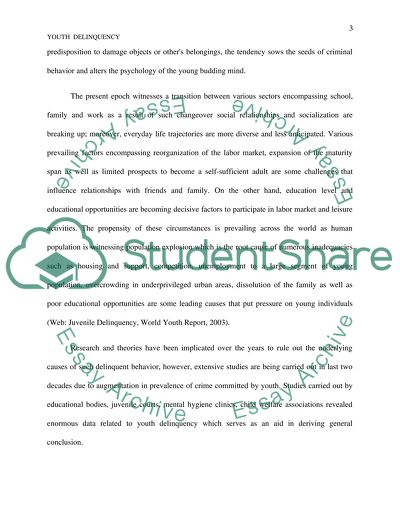Cite this document
(“Causes of Youth Delinquency Essay Example | Topics and Well Written Essays - 1750 words”, n.d.)
Retrieved from https://studentshare.org/sociology/1488391-the-causes-of-youth-delinquency
Retrieved from https://studentshare.org/sociology/1488391-the-causes-of-youth-delinquency
(Causes of Youth Delinquency Essay Example | Topics and Well Written Essays - 1750 Words)
https://studentshare.org/sociology/1488391-the-causes-of-youth-delinquency.
https://studentshare.org/sociology/1488391-the-causes-of-youth-delinquency.
“Causes of Youth Delinquency Essay Example | Topics and Well Written Essays - 1750 Words”, n.d. https://studentshare.org/sociology/1488391-the-causes-of-youth-delinquency.


